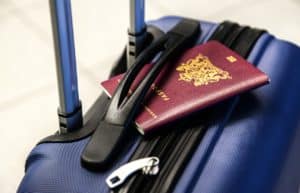You’ve waited months or even years to move to Orlando. Maybe you’ve packed boxes, found a job, sold your house, and even found another home in preparation for moving day, but now you probably feel more uncertainty than excitement with the COVID-19 pandemic. In November 2019, an estimated 1,500 people a week were moving to Central Florida. Relocation undoubtedly slowed beginning in March 2020, but Orlando is gaining new residents again with a quickly rebounding real estate market. And if you are one of the many continuing with plans to move to Central Florida, I’ve put together a list of must-know tips to help you move safely as possible during the pandemic, as well as resources you may need if relocation doesn’t go according to plan.
1. Monitor state and local rules
- Check current state and local rules often. Since March 2020, numerous COVID-19-related orders have been issued in Florida and Orange County (where Orlando is located), as well as surrounding Central Florida counties (Lake, Polk, Seminole, Osceola, Brevard, and Volusia). Due to raising COVID-19 cases, Governor DeSantis extended Florida’s Public Health Emergency for 60 days. Closures, quarantines, restrictions, and curfews remains fluid. Checking state and local government resources for the latest COVID-19 emergency and executive orders will help you prepare for any last-minute changes.
State and county COVID-19 resources:
- Florida Governor’s COVID-19 Resource Center
- Orange County’s Coronavirus (COVID-19)
- Orange County’s Media Advisories
- Florida’s Institute for County Government’s COVID-19 County Response Dashboard

2. Monitor health and travel guidelines
- Health and travel guidelines also change frequently and vary state to state, as well as by country for international relocations. Effective June 5, 2020, travelers from New York, New Jersey, and Connecticut to Florida must self isolate for 14 days (with a few exceptions) under the Governor’s Executive Order No. 20-139. Health and travel updates are available by reviewing Governor DeSantis’ Executive Orders and advisories from the Florida Department of Health. The Centers for Disease Control and Prevention also provides guidelines for health and travel restrictions in the US, as well as recommendations for international travelers. International travelers should also frequently check the U.S. Department of State‘s COVID-19 information for updates regarding international travel to and from the U.S.
Health and travel guidelines:
- Governor DeSantis’ Executive Orders
- Florida Department of Health
- CDC State and Territorial Health Department Websites
- Orange County COVID-19 Health Information
- Orlando City Government’s COVID-19 Information

3. Health and Safety Supplies
- Be prepared with health and safety supplies, including multiple faces masks for each member of your traveling party per day, cleaning supplies, and sanitizers. On June 18, 2020, Orange County’s Mayor Demmings signed Emergency Executive Order 2020-23 requiring face masks when individuals are in public (with some exceptions). Several surrounding counties also require face masks in public. In addition to having multiple masks, try out different masks before moving to determine the ones most comfortable for you. The CDC has helpful information about wearing face masks. Once you move, you can request PPE masks from Orange County’s PPE for Community Initiative, but there is no guarantee PPE will be available. Stock up on proper cleaning products to disinfect surfaces and to clean as you pack. The EPA has a list of disinfectants for use against COVID-19 and steps for effective and safe use. The CDC also has a useful list of cleaning recommendations and tips. While Central Florida has had more cleaners, paper towels, and toilet paper readily available recently, I would try to purchase what you will need before moving.
Resources for cleaning supplies and tips:

4. Get Organized and Purge
Organize and purge as much as you can before your move with your extra time at home during the pandemic. One of the best ways to save money on your move is to move less through selling, donating, recycling, and pitching unwanted items. While having a garage sale might not be the best idea during a pandemic, you can sell items on multiple apps to avoid personal contact. Be sure to sanitize items before selling or donating, however, and contact donation locations ahead of time to learn about any new policies for donations during the pandemic. Moving less lowers stress and can reduce your moving and storage costs significantly, so make it a priority.
Helpful organization, selling, and donation resources:
- List of common items to purge
- How to sell items online
- Donation tips
- What to recycle before your move
- What to throw away before you move

5. Packing and Packing Supplies
If you are doing a DIY move, consider buying new packing supplies instead of accepting donated supplies. Used boxes should set in the garage or a dry, outside area for 24 hours before using. Also, sanitize your belonging as you pack for easier unpacking and to protect others.

6. Movers and Moving Companies
If you hire movers at any point during your relocation, contact the moving company to ask about their COVID-19 response policies and discuss any concerns you may have about safety practices. Keep in mind too that a moving company may hire a local team of packers and movers at your initial location and then a local moving team at your home or storage location in Central Florida. Be sure to find out the COVID-19 policies of both sets of movers. During such an unpredictable time, you might find that moving your own belongings into a self-storage unit or storage pod may be a better option. If you do hire movers, be prepared with sanitation and cleaning supplies for yourself, the movers, and your belongings when you move out and move in to your new home.
Safety practices resources include:
- CDC workplace and home safety practices
- CDC long-haul truck driver guidance
- CDC workplace and business guidance
- OSHA guidance for in-home repair workers

7. Plan Ahead
Expect the unexpected. Plan for extra medicine, food, health and cleaning supplies. Book accommodations ahead of time and plan rest stops so you can research hours of operation, capacity, and possible face covering requirements. Also, allow for more time into your schedule for COVID-19 measures during move to Central Florida. Anticipating the services you will need also help you to make appointments ahead of time and avoid delays. Orange County utilities may have delays, closures, or require advance appointments. The Florida Department of Highway Safety and Motor Vehicles is currently offering modified services by appointment only, so check by your county location to make an appointment. Registering for a Florida SunPass ahead to pre-pay tolls will help avoid contact and delays on multiple toll roads. Also consider grocery delivery and restaurant delivery options available when you relocate.
Planning resources:
- Orange County Utilities
- Orange County Agencies and Facilities
- Florida Department of Highway Safety and Motor Vehicles
- SunPass

8. Self Care to Manage Stress
Moving to a new home is one of the most stressful life events you can experience. The pandemic is an added source of stress and anxiety. Managing your mental health is critical to staying healthy. Try to remember that everyone is under more stress and reactions to stress are different for everyone too. Help children, family, and loved ones cope with their stress. Relax, rest, and recharge when you feel overwhelmed. Sleeping and eating well are also important to your mental health and immune system. Following a few anxiety reduction strategies can also be helpful to staying calm along with getting with adequate sleep and a healthy diet.
Resources for coping with COVID-19 and moving stress:
- CDCs tips for coping with stress
- CDCs general daily life coping tips
- Orange County mental health resources
- Florida Department of Health mental health resources
- Emotional impact resources

9. If you have symptoms
Despite the best planning and precautions, if you think you may have COVID-19 symptoms or have been exposed to someone with COVID-19, self-isolate, notify any movers/contractors, call your doctor, and contact the Florida Department of Health. The Florida Department of Health will provide information on when and where to seek medical treatment. There are several COVID-19 testing facilities in Orange County (including mobile testing facilities) and surrounding counties. You do not need to be an official county resident to get tested, but be prepared with a valid ID, and waits for testing. Testing facilities at least have portable bathrooms, but be prepared with fuel (if visiting in your car), snacks, water, and a way to cool off, if needed. The CDC has helpful guidance for interpreting COVID-19 test results.
Helpful resources if you think you or a loved one has COVID-19:

10. Consumer Protection
Crisis and emergencies leave consumers vulnerable to fraud. To help prevent becoming a fraud victim, follow Orange County’s tips, including vetting contractor information, checking references, and verifying business information. Verify a company’s Florida business registration with the Florida Department of State’s Division of Corporations for proper, active registration. Also research company profiles through the Better Business Bureau, check proper state licensing, and county contractor databases, if needed. If you do become a victim of fraud you can file a complaint with Orange County’s Consumer Fraud Unit. Florida’s Department of Financial Services also has a Consumer Protection Division that can provide assistance, including investigatory and information on disciplinary actions against licensees.
Consumer protection resources:
- Florida Consumer Protection
- Florida Licensee Verification
- Florida Licensee Enforcement Actions
- Orange County’s Consumer Fraud Office
- Orange County’s consumer fraud tips
- Orange County contractor database
- Florida Department of Business and Professional Regulation
- Florida Business Registration Search
- Find a licensed Florida attorney

Moving during a pandemic is possible
With the proper planning and precautions, moving to Orlando during a pandemic is possible, but takes extra planning to do it safely. Staying informed on state and local rules, as well as travel restrictions is the first step to a smooth relocation. I hope that you found this article helpful and that you have a safe move to Florida. To receive more tips on moving to Orlando and to receive all of my latest posts, subscribe to my newsletter below to receive a free mini e-book of 101 tips for moving to Florida.

